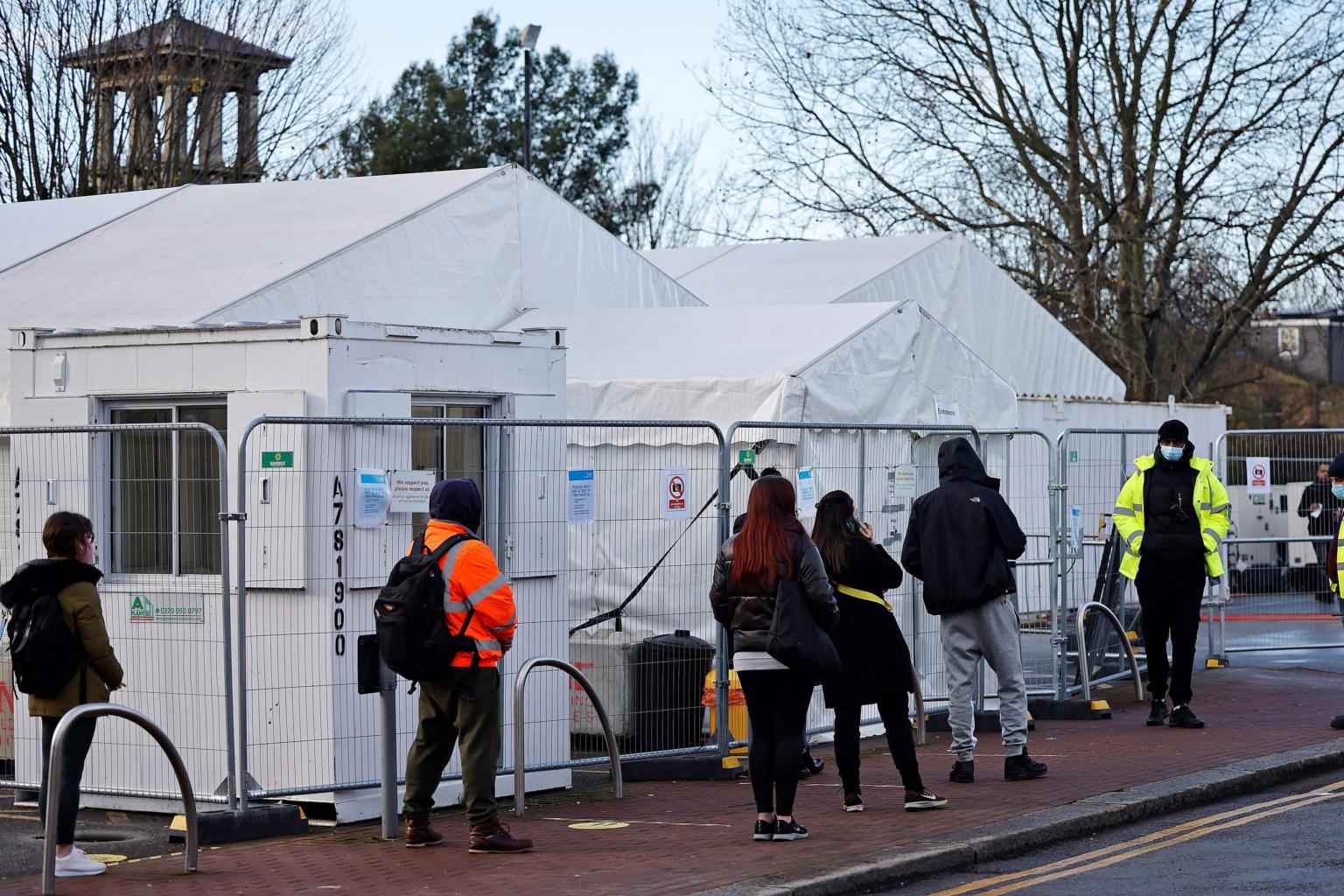Coronavirus US and UK
UK probes whether new variant is behind case spike
Sign up now: Get ST's newsletters delivered to your inbox

People queue outside the entrance to a coronavirus walk-in testing centre in London on Dec 15, 2020.
PHOTO: AFP
LONDON • British scientists are trying to establish whether the rapid spread in southern England of a new variant of the novel coronavirus is linked to key mutations they have detected in the strain.
The mutations include changes to the important "spike" protein that the Sars-CoV-2 coronavirus uses to infect human cells, a group of scientists tracking the virus' genetics said yesterday, but it is not yet clear if these are making it more infectious.
"Efforts are under way to confirm whether or not any of these mutations are contributing to increased transmission," said the scientists, from the Covid-19 Genomics UK Consortium.
The new variant, named by the scientists as "VUI - 202012/01", includes a genetic mutation in the "spike" protein, which, in theory, could result in Covid-19 spreading more easily between people.
The British government on Monday cited a rise in new infections, which it said may be partly linked to the new variant, as its capital city and many other areas move into the highest tier of restrictions.
As of Sunday, 1,108 Covid-19 cases with the new variant had been identified, predominantly in the south and east of England.
But there is currently no evidence that the variant is more likely to cause severe Covid-19 infections, the scientists said, or that it would render vaccines less effective. "Both questions require further studies performed at pace."
Mutations, or genetic changes, arise naturally in all viruses, including Sars-CoV-2, as they replicate and circulate in human populations. In the case of Sars-CoV-2, these mutations are accumulating at a rate of around one to two mutations per month globally, said the Covid-19 Genomics UK Consortium's genetics specialists.
"As a result of this ongoing process, many thousands of mutations have already arisen in the Sars-CoV-2 genome since the virus emerged in 2019," they said.
Most of the mutations seen so far have had no apparent effect on the virus, and only a minority are likely to change the virus in any significant way - for example, making it more able to infect people, more likely to cause severe illness, or be less sensitive to natural or vaccine-induced immune defences.
The World Health Organisation said it is aware of the genetic variant, adding that it is working with a network of global laboratories to see if this variant is becoming more prevalent around the world.
Meanwhile, millions of Londoners will be ordered to comply with England's toughest Covid-19 rules from today. The switch to tier three rules from tier two will see pubs, bars and restaurants closed, except for serving takeaway meals. Theatres and museums will also be shut.
Health Secretary Matt Hancock said he understands the tighter measures will be difficult but insisted they are essential to protect lives and jobs in the longer term.
"This action is absolutely essential, not just to keep people safe, but because as we've seen early action can help prevent more damaging and longer lasting problems later," he said.
Between Dec 23 and 27, however, people will be free to mingle with two other households indoors as they celebrate Christmas. Doctors have warned that this will lead to a rise in infections and hospitalisation rates next month and in February.
REUTERS, BLOOMBERG


